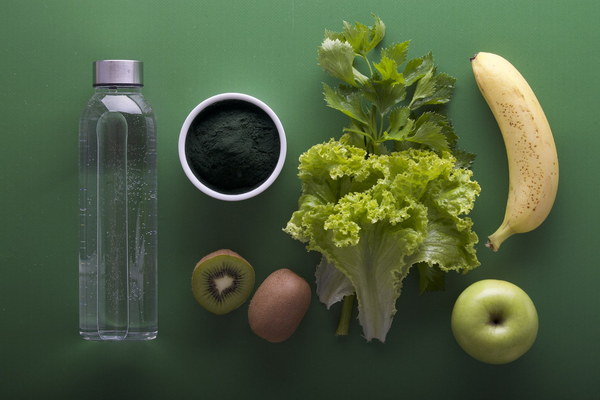The Most Effective Ways to Nourish Your Kidneys A Comprehensive Guide
Introduction:
In today's fast-paced world, taking care of our health is more important than ever. One of the most crucial organs in our body is the kidneys, which play a vital role in filtering waste and toxins from our blood. Unfortunately, due to poor lifestyle choices, many people suffer from kidney problems. So, what are the most effective ways to nourish and protect your kidneys? In this article, we will explore some of the best practices to keep your kidneys healthy and functioning optimally.
1. Maintain a Balanced Diet:
A balanced diet is essential for kidney health. Incorporate a variety of fruits, vegetables, whole grains, lean proteins, and healthy fats into your meals. Some kidney-friendly foods include:
- Berries (like blueberries, strawberries, and raspberries)
- Leafy greens (like spinach, kale, and Swiss chard)
- Lean proteins (like chicken, turkey, and fish)
- Healthy fats (like avocados, nuts, and olive oil)
2. Stay Hydrated:
Proper hydration is crucial for kidney health. Drinking enough water helps to flush out toxins and waste from your kidneys. Aim to drink at least 8-10 glasses of water daily, or more if you are active or live in a hot climate.
3. Limit Salt Intake:
Excessive salt consumption can lead to high blood pressure, which puts a strain on your kidneys. Try to reduce your salt intake by using herbs and spices instead of salt, and avoiding processed foods and fast food.
4. Exercise Regularly:
Regular exercise improves overall health and helps to maintain a healthy weight, which is beneficial for kidney health. Aim for at least 30 minutes of moderate exercise, such as walking, cycling, or swimming, most days of the week.

5. Avoid Smoking and Limit Alcohol Consumption:
Smoking and excessive alcohol consumption can damage your kidneys. Quitting smoking and limiting alcohol intake can significantly reduce the risk of kidney problems.
6. Manage Chronic Conditions:
Chronic conditions like diabetes, high blood pressure, and heart disease can put a strain on your kidneys. Work with your healthcare provider to manage these conditions effectively, as early detection and treatment can help prevent kidney damage.
7. Regular Check-ups:
Regular kidney function tests and check-ups with your healthcare provider are essential for early detection and treatment of kidney problems. If you have a family history of kidney disease or other risk factors, it's even more important to stay proactive with your health.
Conclusion:
Taking care of your kidneys is essential for overall health and well-being. By following these effective ways to nourish your kidneys, you can significantly reduce the risk of kidney problems and maintain optimal kidney function. Remember, prevention is key, so make these healthy habits a part of your daily routine.









